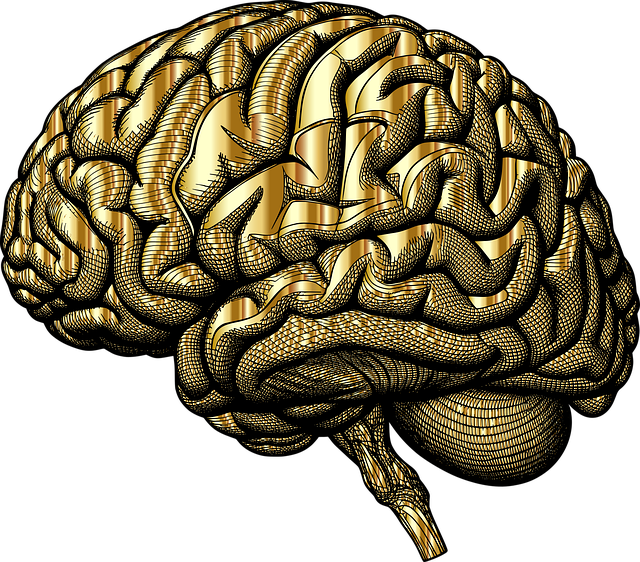Cultural sensitivity is vital in mental healthcare, especially in diverse communities like Greenwood Village, where historical, religious, and socio-economic factors influence well-being. Practitioners adapting their approaches to incorporate traditional healing practices and tailored communication strategies enhance treatment outcomes. In Greenwood Village Drug Abuse-Substance Abuse Therapy (GVDASAT), cultural sensitivity builds trust, improves risk assessment, and fosters open dialogue among clients from diverse backgrounds, setting a benchmark for effective mental healthcare delivery.
In today’s diverse society, cultural sensitivity is paramount in mental healthcare. Understanding and respecting various cultural beliefs and practices can significantly enhance patient outcomes. This article explores the essential components of culturally competent care, highlighting challenges faced by professionals. It delves into actionable strategies for therapists to incorporate cultural sensitivity, drawing insights from successful models like Greenwood Village Drug Abuse-Substance Abuse Therapy, showcasing real-world impacts on patient journeys.
- Understanding Cultural Sensitivity in Mental Healthcare
- Challenges in Providing Culturally Competent Care
- Strategies for Incorporating Cultural Sensitivity in Therapy
- The Impact of Cultural Awareness on Treatment Outcomes
- Case Studies: Effective Cultural Sensitivity in Practice at Greenwood Village Drug Abuse-Substance Abuse Therapy
Understanding Cultural Sensitivity in Mental Healthcare

Cultural sensitivity in mental healthcare involves recognizing and respecting the diverse beliefs, values, and practices of individuals from different backgrounds. It’s about understanding that mental health issues and their expressions can vary significantly across cultures, as can effective treatment approaches. For instance, what constitutes a healthy mind or a balanced life can be vastly different in Greenwood Village compared to other communities, influenced by factors like history, religion, and socio-economic conditions.
A culturally sensitive practitioner pays close attention to these nuances, ensuring that their approach aligns with the client’s cultural context. This might involve incorporating traditional healing practices, adapting therapeutic techniques, or using specific communication strategies. For example, a therapist skilled in drug abuse-substance abuse therapy might offer tailored Guidance on Mental Wellness Journaling Exercises that resonate with a client’s cultural identity, fostering a deeper connection and potentially enhancing treatment outcomes. Such an approach not only promotes positive thinking but also builds trust and encourages clients to engage more openly in their healing process.
Challenges in Providing Culturally Competent Care

Providing culturally competent care presents unique challenges in mental healthcare. In diverse communities like Greenwood Village, where issues around drug abuse and substance use are prevalent, understanding cultural nuances is paramount. Patients from varied ethnic backgrounds may hold different beliefs about health, wellness, and mental illness, influenced by their cultural contexts. For instance, some cultures may emphasize collective family experiences over individual therapy sessions, while others might have specific practices for coping with stress that differ from conventional Western approaches.
These differences can create barriers to effective treatment, as healthcare providers must adapt their practices to respect and accommodate these varied perspectives. Building trust and fostering a sense of safety is essential, requiring cultural sensitivity training and ongoing education for therapists and counselors. Techniques such as Mindfulness Meditation and inner strength development can be tailored to incorporate cultural elements, boosting patient confidence in the therapeutic process and leading to more successful outcomes, including those seeking Greenwood Village Drug Abuse-Substance Abuse Therapy.
Strategies for Incorporating Cultural Sensitivity in Therapy

Incorporating cultural sensitivity into therapy sessions is a multifaceted approach that requires a deep understanding and respect for diverse backgrounds. Therapists in Greenwood Village Drug Abuse-Substance Abuse Therapy can begin by actively listening to their clients’ stories, acknowledging their cultural contexts, and validating their experiences. This foundational step fosters trust and encourages open communication. By creating a safe and inclusive environment, therapists can better tailor their practices to meet the unique needs of each individual.
Additionally, incorporating elements from the client’s culture into therapy sessions, such as traditional healing practices or community support systems, can significantly enhance treatment outcomes. Stress Management and Anxiety Relief techniques that are culturally relevant can be taught and encouraged. Even organizing Stress Management Workshops within organizations catering to diverse communities can facilitate a deeper understanding of cultural sensitivities, ultimately leading to more effective care.
The Impact of Cultural Awareness on Treatment Outcomes

Cultural awareness plays a pivotal role in shaping the effectiveness of mental healthcare services. By integrating knowledge about diverse cultural beliefs and practices, mental health professionals can significantly improve treatment outcomes for individuals from various ethnic backgrounds. This is particularly crucial in areas like Greenwood Village, where drug abuse-substance abuse therapy demands sensitivity to the unique needs of each community.
For instance, understanding cultural contexts helps therapists adapt their approaches to address specific challenges. In the case of substance abuse, certain cultural practices might influence an individual’s relationship with addiction and recovery. Awareness of these nuances enables professionals to incorporate culturally sensitive techniques like mental wellness coaching programs and mood management strategies, thereby fostering better engagement and positive outcomes. Furthermore, promoting emotional well-being through tailored interventions not only enhances therapy success rates but also contributes to the holistic development of clients’ mental health.
Case Studies: Effective Cultural Sensitivity in Practice at Greenwood Village Drug Abuse-Substance Abuse Therapy

Greenwood Village Drug Abuse-Substance Abuse Therapy (GVDASAT) is renowned for its exemplary approach to cultural sensitivity in mental healthcare. Through a series of case studies, they demonstrate how understanding and incorporating diverse cultural perspectives can significantly enhance therapeutic outcomes. For instance, their team employs compassion cultivation practices, fostering an environment where patients from various ethnic backgrounds feel seen and heard. This not only improves trust but also encourages open dialogue, crucial for effective risk assessment in mental health.
Furthermore, GVDASAT’s crisis intervention guidance is tailored to address cultural nuances, ensuring that interventions are sensitive to the unique experiences of each individual. By integrating these strategies, the therapy center has achieved remarkable success in treating clients with diverse backgrounds, highlighting the power of cultural sensitivity as a game-changer in mental healthcare delivery.
Incorporating cultural sensitivity into mental healthcare practice is no longer a consideration but an imperative. As evidenced by case studies like those at Greenwood Village Drug Abuse-Substance Abuse Therapy, understanding and respecting diverse cultural backgrounds can significantly enhance treatment outcomes. By addressing the challenges of providing culturally competent care and implementing effective strategies, therapists can create inclusive environments that foster healing. Cultural awareness not only improves access to mental health services but also ensures that every client receives tailored support, ultimately leading to better health outcomes and more positive transformations.














